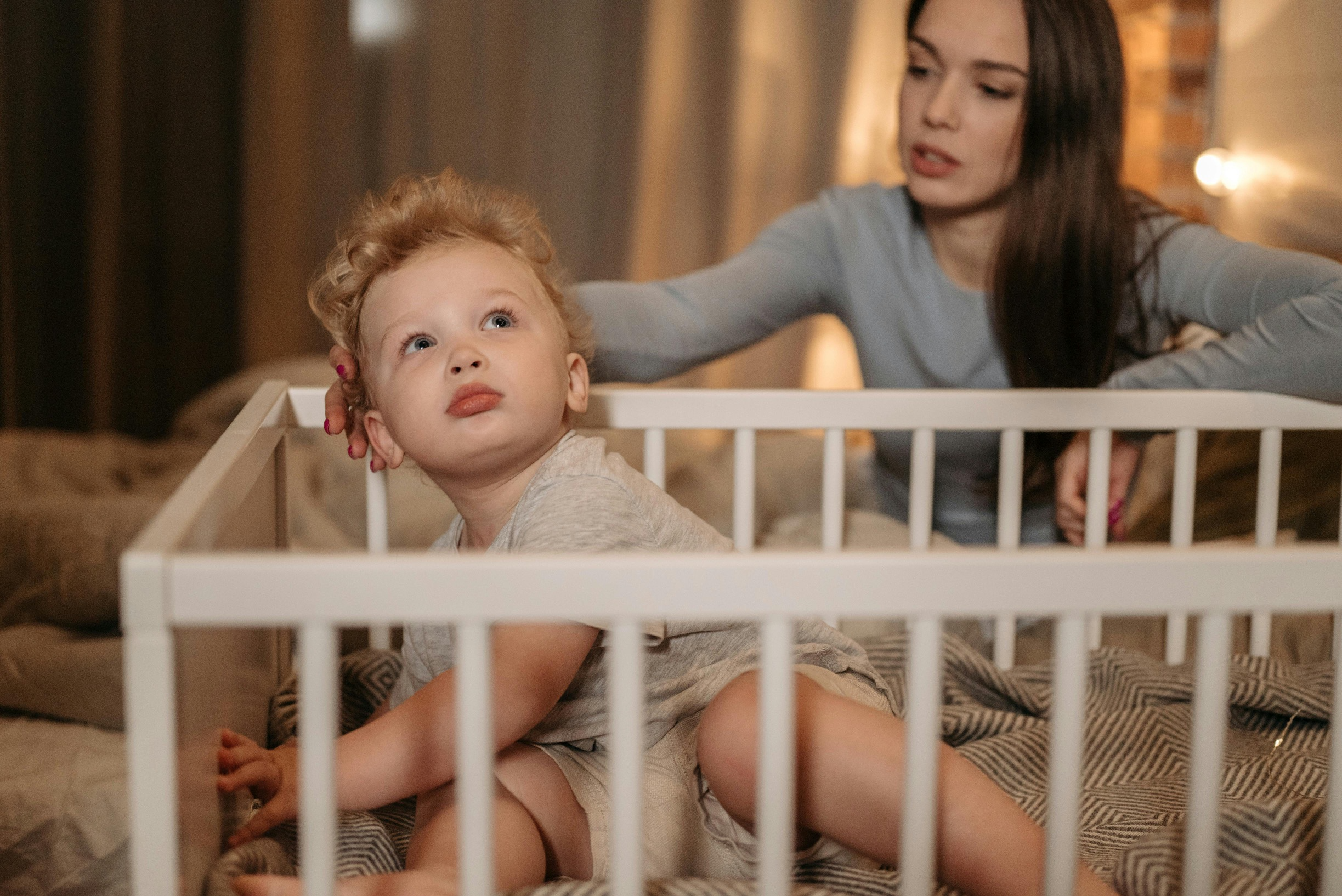Sleep training can be daunting for new parents. If your baby isn’t getting the sleep that they need, it can cause stress in the family, making it difficult to know where to start and the best approach.
Fortunately, there are a variety of resources available to help new parents understand the basics of sleep training and develop a plan that works for their family. This guide will provide an overview of sleep training basics, plus tips for getting started with sleep training.
Understanding Sleep Training for New Parents
Sleep training is a process of teaching your baby how to sleep through the night and for longer periods in a gentle way. We understand how frustrating it can be when you and your baby are sleep-deprived. You’ve tried everything, but nothing works – each sleep coach at Sweet Dreams has been there, which is why we became sleep coaches, having seen the transformation sleep training had on our children and our families.
Helping your baby, toddler, or older child sleep better is one of the greatest gifts you can give them, and we are here to provide support, guidance, and our experience. And leaving them to cry for long periods is never part of the plan!
How and When Should You Start Sleep Training Your Baby?
Sleep training your baby is an important part of parenting. It helps your baby learn to sleep through the night and can lead to better sleep for the wider family too. But when should you start sleep training a baby? That depends on the age of your child, as well as the methods you choose to use. Gentle methods can be used from birth, but we have found that babies aged from 5-7 months respond best.
It’s also important to consider a child’s temperament when deciding when to begin sleep training. Some babies are naturally good sleepers and may not need as much sleep training, while others may require more help. Every child’s development is different, and it’s important to take that into consideration before you begin sleep training.
What about the “cry-it-out” method?
We firmly do not support this route. We couldn’t do that with our own children, and as a result, would never ask another parent to use this approach.
However, parents need to realistic. There will be some crying during the sleep training process. If there was a magic wand to make it a totally cry-free experience, those wands would be in high demand! Babies clearly can’t communicate with speech to explain that they’d prefer to fall asleep with their bottle for comfort during the night hours or they love drifting off at 3am with a parent jiggling them gently to sleep, and likewise you can’t explain to them why their preferred method of sleep is perhaps not sustainable for their wellbeing, your health, the wellbeing of their siblings, your job, your relationship or your overall sanity. We all need rest to function well. So, unable to verbalise their satisfaction, for babies, there’s little other way than a little cry of protest.
Sleep training not only provides advice on every element of increasing good sleep habits but also coaches you through handling your little one’s protests as gently as possible. Together, we can explore the best sleep training method for your child to minimise the protests as much as possible within all of your comfort zones.
Using gentle sleep training plans, you’ll be in the room comforting and teaching them how to sleep on their own – it’s not a case of simply putting them to bed and shutting the door. Sleep training should be a partnership between yourselves as parents and the trainer or coach, listening carefully and working with your wishes on how you want to handle many different scenarios that could and will arise, so you have the tools for success at bedtime.
What Should You Keep in Mind While Implementing a Sleep Schedule for Your Baby
Establishing a regular sleep schedule for your baby is a key step in helping them develop healthy sleep habits. There will be bumps in the road and regression stages, but this is all part of the learning process.
We are here to help you through the process, so please reach out to the team if you feel we could help you. Book a free consultation call if you’d like to talk about your child’s sleep.




